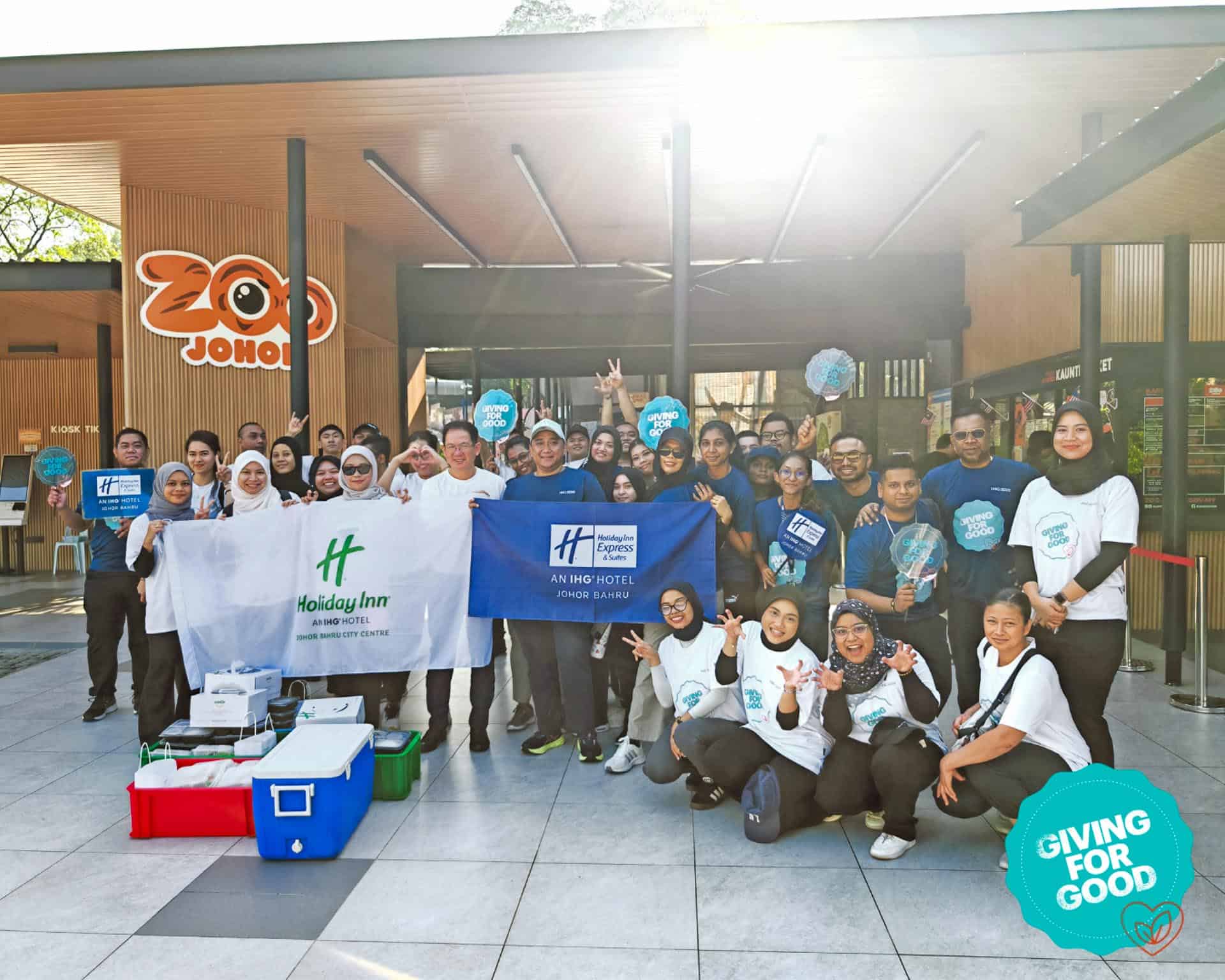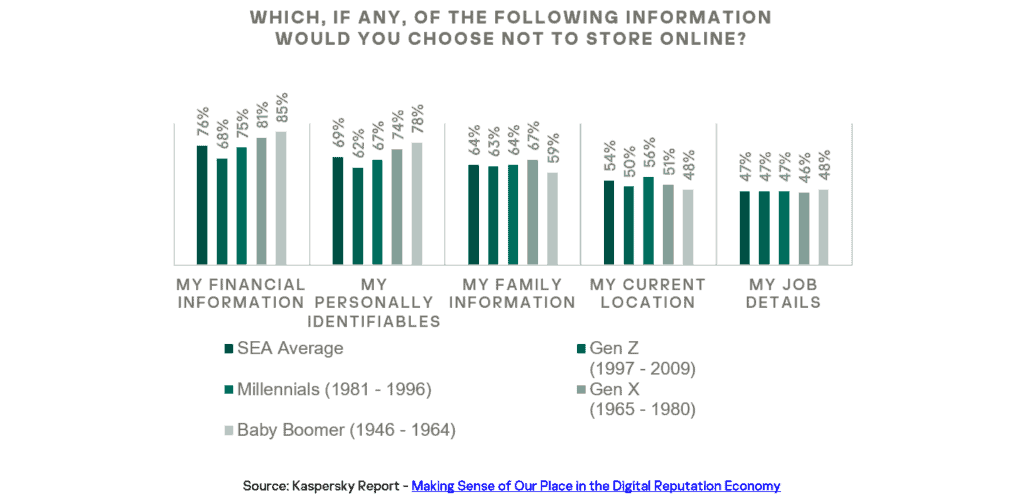
Kaspersky report shows awareness against risks online is there, but action remains an area of improvement
03 May 2021 – Do you feel afraid every time you input your credit card information or banking details on a shopping site or a payment app? You are not alone, at least according to a survey from the global cybersecurity and digital privacy company Kaspersky.
The report titled “Making Sense of Our Place in the Digital Reputation Economy” discovered some types of personal information are sacred to social media users in Southeast Asia (SEA), which they prefer not to share or store online.
Financial information, such as credit or debit card details, tops the list with the majority (76%) of 861 respondents in the region confirming their intent to keep their money-related data away from the internet.
The sentiment is highest among Baby Boomers (85%), followed by Gen X (81%), and Millennials (75%). Gen Z, the youngest generation, logs the lowest percentage with only 68% opting not to store their financial credentials online.
This is not a surprise as several studies cited SEA’s young population as a key factor in its emerging drive towards e-payments, in addition to the significant percentage of the region’s still unbanked or underbanked citizens, the high mobile adoption, and the government’s push for greater digital payment adoption.

Southeast Asians on social networking platforms also prefer not to share on their account their personally identifiable information or PII (69%), information about their immediate family (64%), about their whereabouts (54%), and about their jobs (47%).
When it comes to the group of people they want to keep these data away from, respondents from SEA almost unanimously revealed that it would be worrisome if these particular data will be seen or stolen by cybercriminals (73%) and random strangers online (61%).
“This health crisis accelerated Southeast Asia’s cashless drive at a rapid pace, parallel to the offline-to-online shift of most activities in the region since last year. It is a welcome insight that users here are now thinking thoroughly about the data they share and don’t share online. Most also know now that cybercriminals and the general online public should never get their hands on such information. Awareness, however, does not necessarily equate to action,” comments Chris Connell, Managing Director for Asia Pacific at Kaspersky.
While most (71%) of the respondents from SEA use passwords to protect their laptop or mobile phones, just 5 in 10 (54%) check and change the privacy settings of devices, apps, or services they use and only 4 in 10 (47%) avoid illegal or pirated software and applications.
The same survey, conducted just last November 2020, also unmasked that only half (53%) of the respondents from the region have installed internet security software on their devices.
“As the fastest growing region in the Asia Pacific in terms of internet adoption, we see that this is just the beginning of SEA’s digital journey. It is understandable that some may still feel afraid and unsure when they use services such as digital payments because it is relatively new, and yes, there are risks present. This is why it’s crucial to put awareness into action,” Connell adds.
Kaspersky experts suggest the following steps to keep financial data and personal information safe online.
Posting too much information on social media can make it easier for cybercriminals to piece together information about you. To maximize your online privacy, it is a good idea to:
About the survey
The Kaspersky “Making sense of our place in the digital reputation economy” report studies attitudes of individuals in Asia Pacific towards building a secure and reputable online identity on social media. It also looks into how tainted digital reputation of businesses are perceived.
The study was conducted by research agency YouGov in Australia, India, Malaysia, Philippines, Singapore, and Vietnam last November 2020. A total of 1,240 respondents were surveyed across the stated countries.
The respondents ranged from 18-65 years of age, all of which are working professionals who are active on social media (spending at least 1 hour a day on social media). Through this paper, when the behaviour of the population of a market is generalised, it is in reference to the group of respondents sampled above.
